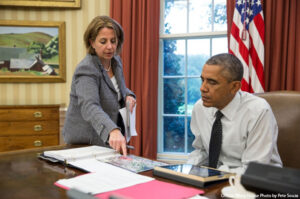
Last month, Canada, recently ranked the seventh “most peaceful nation” by the Institute for Economics & Peace, faced two unrelated but public acts of violence.
What Happened?
On October 20, in the city of Saint-Jean sue-Richelieu, Quebec, 25-year-old Martin Couture-Rouleau rammed his car into two Canadian Armed Forces soldiers in a mall parking lot, killing one of them, Patrice Vincent. He called 911, telling the authorities he had “acted in the name of Allah” (God in the Muslim faith). After leading police on a high speed chase, Couture-Rouleau lost control of his vehicle, rolling it several times. After emerging from the car brandishing a knife, he was shot and killed by authorities.

Two days later, on October 22, a man named Zehaf-Bibeau carried a gun into Confederation Square, an outdoor square in the heart of downtown Ottawa. At the National War Memorial, a national monument honoring those who served in World War I, he approached the unarmed, ceremonial guard, Corporal Nathan Cirillo and shot him at close range. Corporal Cirillo died as a result of these wounds. Zehaf-Bibeau fled the scene, ran through a gate surrounding Parliament Hill (a cluster of government structures), hijacked a car and drove to Centre Block, the building where Parliament meets. A security officer named Samerarn Son spotted the weapon and struggled with Zehaf-Bibeau. During this struggle, the officer was shot in the foot. The perpetrator exchanged several gunshots with other guards before being killed.
Motivations
Couture-Rouleau and Zehaf-Bibeau were both considered “lone wolves” (a term used by law enforcement to describe individuals who commit violent acts as support of a specific ideology but were not given specific instructions by any particular group). While these men did not know one another personally, they shared similar views.
Both converted to Islam relatively recently and were interested in the radical extremist groups like ISIS. Couture-Rouleau was on a list of 90 people who were suspected of wanting to join militant fighters abroad. Zehaf-Bibeau was considered by law enforcement to be a habitual offender, having been arrested on a number of occasions for theft and drug possession. Some of his acquaintances questioned his mental health, citing erratic behavior. Some say a processing delay of his passport, to be used to visit Syria, may have triggered the attacks.
Aftermath
Even though the two incidents of terror appear to be isolated, many are worried about a possible threat from ISIS. The Canadian Prime Minister Stephen Harper made a public statement saying that Canada would not be intimidated by terrorist attacks. After the 9/11 attacks in the United States, the Canadian government created an agency called the Integrated National Security Enforcement Teams (INSET) to track activities of anyone or group that poses a threat to Canada’s national security. In addition, the Counter Terrorism and National Security Committee are in place to “neutralize violent extremism within communities across Canada.”
There are millions of practicing Muslims who are in way affiliated with the radical segments of the religion. These people fear a backlash triggered by the attacks. Prominent Muslim leaders have made public statements condemning the acts of violence and supporting Canadian law enforcement in fighting extremism.
